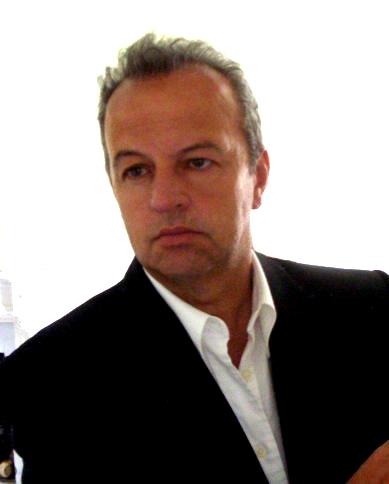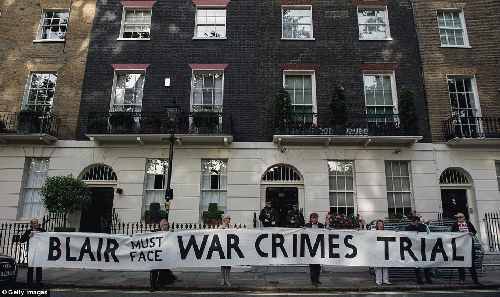The jailing of Ratko Mladic last week, for crimes of genocide committed in Srebenica and the Siege of Sarajevo in 1995, once again reveals the inadequacy and institutional bias that plagues the international-justice system. Based on numerous treaties, statutes, conventions and also on unwritten law derived of principles established at Nuremburg, international humanitarian law is both complex and confused - and the ad hoc tribunals it has established in recent years to investigate possible breaches are unsatisfactory. It is not that Mladic does not deserve to be held to account for his actions during the civil wars that occurred after the break-up of Yugoslavia in the 1990s, but that in its selective application of the processes of justice for these atrocities, the international-justice system is exposed to the criticism that it addresses only those conflicts which suit the ends of Western powers.
Although Mladic was tried under the auspices of the International Criminal Tribunal for Yugoslavia, the International Criminal Court (ICC) was subsequently established to fulfill a wider role to examine crimes purported to have been committed during armed conflicts wherever they may have occurred. In this respect the ICC should have provided a more permanent and even-handed basis for the administration of the plethora of treaties and conventions that comprise international-humanitarian law - an acknowledgement that there are limits to human conduct even in war. This provides for protection of the wounded and sick, captured persons and for non-combatants; it prohibits torture, cruel, inhuman or degrading treatment of prisoners; and it prohibits any form of punishment. It also specifies that only military targets may be attacked in conflicts. In spite of this, we have regularly seen actions committed that appear to be in breach of all of these conditions - indeed, there is more than sufficient evidence, one would think, to require the instigation of inquiries (if not proceedings) against numerous individuals on the basis of their actions in recent and current conflicts. That the ICC was established for this purpose and yet has failed to bring a single Western politician, administrator or military person within the scope of its legal processes is damning enough, but the fact that to date, all 39 indictments it has made have been against people from the African continent, is astonishing.
We have very slight reason to congratulate ourselves for this or to believe that our military are in possession of a superior ethic. It seems reasonable to say that of all morally repugnant acts of war, those instances that stand out to the international community in our time must surely be those committed by the West and its allies: the invasion of Iraq itself - what Arundhati Roy has referred to as "one of the most cowardly wars in history" - still stands as a beacon to Western disregard for justice and as a testament to the impunity of Western leaders to judicial accountability.
The charge sheet against the West is long and disturbing: the indiscriminate US bombing and shelling of Falluja, using depleted uranium shells in 2005, with its consequent devastation and ongoing health issues for the civilian population of the region is particularly repugnant; the incidents occurring at Abu Ghraib, the systematic torture of prisoners - including "rendering" in secret prisons, with the deliberate intention of circumventing judicial process, has rightly shocked the world; and Guantanamo Bay, where men have been held in permanent unchallenged incarceration - is silently acknowledged by much of the world to be reprehensible - except to the black hole of the justice system. Another notable candidate for the urgent attention of the ICC is the destruction and degradation of Libya carried out by the US, UK and France under the auspices of the now notorious "No-Fly Zone". Are none of these matters explicitly the subject of international humanitarian law? And what of the ongoing ethnic cleansing that has become a way of life in the territories of Palestine by Israel - surely such matters are not simply within the purview of international humanitarian law but are its very purpose?
Reasonable people are entitled to ask if no-one is held to account for what may be the worst actions carried out in our age, then what possible justification can there be for pursuing lesser people in respect of similar crimes? Even if the catalogue of crimes against humanity needed to be prioritised for some practical purpose, it would still - one would think - result in the actions of the West taken in Iraq, Libya and Afghanistan et al occupying the top of that list for a considerable period. Until these matters are addressed by the ICC, such issues as its legitimacy, scope and motives will continue to be questioned - with good reason. There may be satisfaction that Mladic is in jail, but what assurance can possibly be given that such judicial processes have been fairly applied and with proper regard to all circumstances, when equal or even far greater accusations of crimes remain unaddressed by the international community?
The ICC itself cannot be blamed for failing to live up to the expectations placed upon it and yet it suffers as a consequence when it fails to act with equal fairness to all: the way in which it has been established under the Rome Statute, 1998, has shackled it and given it an institutional bias not of its own making. For instance, the US is not a signatory to the ICC and refuses to recognise or acknowledge its jurisdiction over US political or military actions and personnel - yet the US is a major participant in the legal processes it employs against those who are subjected to ICC jurisdiction. Furthermore, it is active in gathering and furnishing intelligence for prosecution purposes. Not only is that an affront to justice, it degrades the authority and credibility of the ICC that a non-signatory power, whose acts and violations remain conspicuous in their absence from international scrutiny, may seek to serve justice on others for similar or lesser crimes.
Nor is the US the only offender: China is neither a signatory to, nor a participant in, the ICC and Russia has withdrawn its support in view of the bias it perceives in the ICC serving only Western interests. India too, has indicated that the ICC will not receive its support. Thus the ICC is dangerously coalesced in its Eurocentric base in The Hague, where ex-colonial powers still seek to impose their jurisdiction upon the ex-colonies. One senses the sheer frustration of men like Julius Malema who, in 2011, demanded to know why arrest warrants had not been issued for Obama, Cameron and Sarkozy by the ICC in view of their actions in Libya. Although Article 8 of the Rome Statute, covering "crimes of aggression", has never been ratified as a result of its frustration by the main powers - who fear it would furnish grounds for prosecution of themselves for war crimes - its neglect has simply added further weight to the argument that the ICC is fashioned to provide retributive justice against the West's enemies.
Western powers often claim that their domestic-justice systems are sufficiently robust to deal with instances of crimes of this kind, and yet experience suggests that this is not so. For instance, the acts of the UK military in Iraq and Libya have resulted in scant regard being given for criminal acts involving torture, murder and serial breaches of international law. When such cases have been (very rarely) brought before UK courts, the courts have acted sympathetically and with partiality in respect of offences - to the detriment of justice and the upholding of the law. Doubtless media and political bias and public pressure has aided their cause in defending against the proper investigation of charges against "our boys".
It is such observations as these that have caused mounting scepticism - and anger - on the part of non-aligned countries, who have come to regard the ICC as a post-colonial mechanism for bringing ex-colonial subjects within the jurisdiction of their powers. South Africa's withdrawal from the ICC in 2017, although temporary, was a sure sign of gathering clouds: it remains a stated objective of South Africa to exit the ICC and it has been joined by others including Kenya, Namibia and Uganda - which, if it happens, will surely lead to a mass exodus by the rest of Africa. That would effectively be the end of the troubled ICC and a significant blow to those who wish to see international humanitarian law properly applied across the globe.
The idea of international justice is fraught with difficulties in concept and application, but the principle itself is sound enough: there is an international recognition that to force adherence to the minimal standards of human conduct during war is desirable and that consequently there must be a means of holding participants and combatants in such wars to account in an independent way. That this has not and is not happening is the greatest challenge facing the ICC and the cause of international justice. It is widely acknowledged as a principle of jurisprudence that equality before the law is the essence of participation: that if law is to be accepted as a common standard to which all can be held accountable, then it must extend to all in its process and application. With Western nations involved solely in its applicability to others, the judgements it delivers against those countries and individuals of whom Western powers disapprove, remain at best dubious - and at their worst, may be considered as simple retribution.






